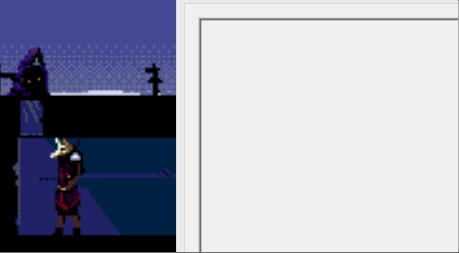Showcase of game development projects
Project maintained by diegzumillo Hosted on GitHub Pages — Theme by mattgraham
- Game in Unity - Apple & Worm: Patching holes on spacetime
- A ray marcher renderer in a custom engine in C
- Game for the Mega Drive
- Fluid Simulation in Lua
- Assorted videos of old projects
Game in Unity - Apple & Worm: Patching holes on spacetime
A showcase of the technical achievements of this project
Apple & Worm is a platformer that happens in a curved 2D space, where different regions connect to other regions in unintuitive ways. This creates a game space with non trivial topology. While the game itself is still in development the engine is done.
In order to achieve the curved and interconnected space the game design requires, several approaches were implemented and tested. Here you can see some images of the progress of the engine at its various stages.
A video on Youtube showcasing the gameplay
Early tests of curved spaces



And the first iteration of a custom physics engine using Verlet integration method.

The new implementation (but still using the custom physics engine)

Custom editor extensions



A ray marcher renderer in a custom engine in C
This project started its life as a quick experiment in Unity. I wanted to write a ray marcher in shader. It worked, but it felt like I was fighting against the engine. So I moved to Godot, and it felt the same. This project is one of those rare cases where building an engine from the ground up makes sense. The communication with the shader needs to be hand crafted to make this work as intended, and that’s what I did. The goal of this project is to eventually make a flight simulator in a scifi setting; A few basic features already implemented: full planet scale terrain, pre-defined number of dynamic lights with smooth shadows, a number of primitive SDF (signed distance function) to combine into complex objects, including fractals, basic material with specular, color, texture, and displacement. The whole engine is put together with SDL2 and openGL.







Game for the Mega Drive
SGDK is a library for C that allows one to program the SEGA Mega Drive. I always wanted to make a Mega Drive game, but was never insane enough to code in ASM, so this came in handy! It’s still extremely low level coding, very close to the hardware. It was a nice challenge and learning project. I eventually shelved this project because I wasn’t too happy with the prototype, but has since been revived for an upcoming kickstarter campaign.
Initially, this was going to be closer to games like Prince of Persia, Flashback, Blackthorne etc, but with stealth

Testing guard behavior:

Testing level transition

Once that wasn’t working for me I decided to implement a more free form movement style

Extra artistic stuff:



This game saw a Kickstarter campaign in 2024, which failed to achieve its goal but did raise 15000 euro. Kickstarter for The Eldritch Monarch
Fluid Simulation in Lua
There were two things I wanted to try, fluid simulations and the Löve game engine. So why not merge both into a single project? This wasn’t my first contact with Lua, as that’s the primary language in Pico-8. This project combines the Immersed Boundary Method (IBM) with traditional fluid dynamics techniques to create a versatile and visually appealing simulation.
The simulation features:
- Real-time fluid dynamics using a modified Navier-Stokes solver
- Immersed boundary method for fluid-structure interaction
- Customizable immersed objects with dynamic properties
- Dye injection for flow visualization
- Vorticity confinement for enhanced turbulence
This project serves as both a learning exercise and a potential foundation for future game mechanics. The fluid simulation could be integrated into various game concepts, from realistic water effects to abstract puzzle mechanics based on fluid dynamics. At least that was the idea! But I didn’t push this enough to be able to make an actual ‘swimmer’. My best attempt worked; It was a simple object, with a single dynamic bridge (a muscle) that contracted, creating enough of an asymmetric drag to produce thrust. But it was too lame to be useful.


[Insert images/gifs here to showcase the fluid simulation in action]
The implementation allows for easy experimentation with different parameters and boundary conditions, making it a valuable tool for prototyping ideas that involve fluid dynamics. Future plans include optimizing performance for larger simulations and exploring additional fluid-based game mechanics.
Assorted videos of old projects
A stealth game prototype.
It has parkour movement implemented, (with a damn cool grapple system I still want to use somehwere) as well as a novel detection system that analyzes a guard’s actual vision for changes.
Old 3D puzzle platformer
Very old. Looks fun though.
Sound propagation system
I’m pretty sure this was meant to go with the stealth prototype.
Basic Flight simulator dynamics
Yes, this is for the ray marcher project above. I made this as a proof of concept and it will definitely make its way to the ray marcher eventually. The plots show some of the flight dynamic coefficients changing in real time. This was made in Unity.
A simple game on Pico-8
A sprite tool
For the Mega Drive game project I saw the need to make this tool. It shifts the sprite each frame and outputs all the offsets. This was made in Godot.
A music maker
Never finished it but the idea was to make a basic note sequencer. Also made in Godot.







